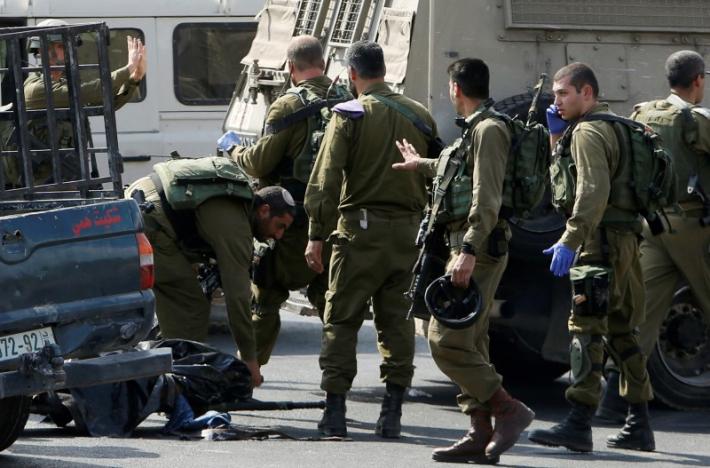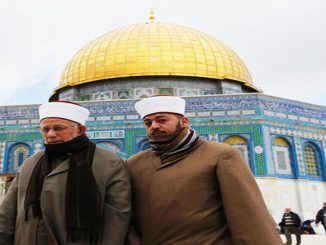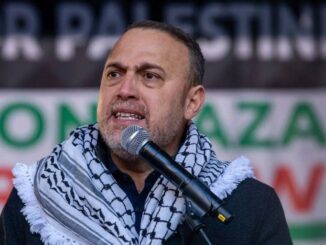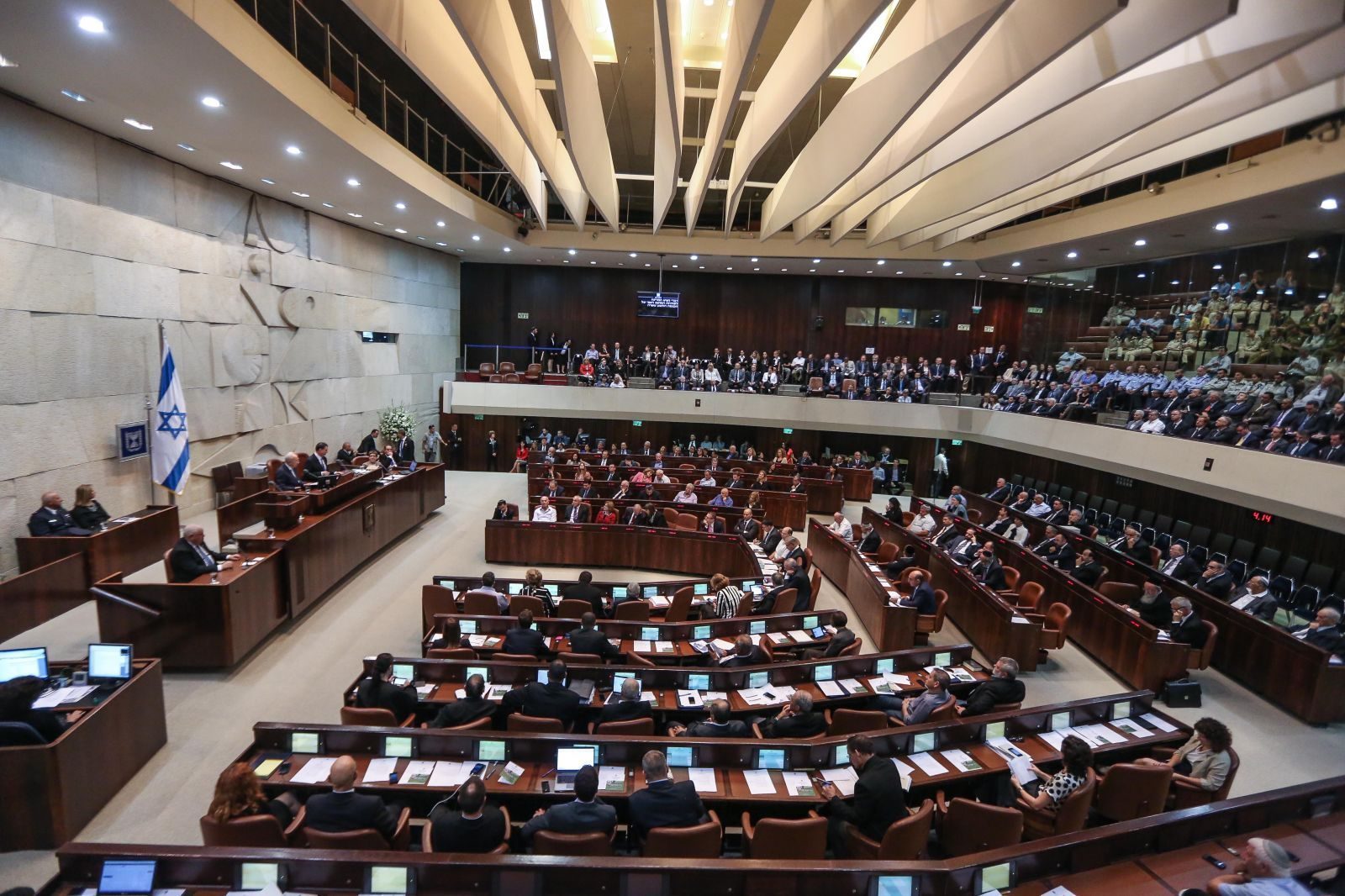
Israeli forces shot dead three Palestinians in separate incidents in East Jerusalem and the West Bank on Friday, police and the military said, in a flare-up of a nearly year-old wave of Palestinian street attacks, according to Reuters.
With most anti-Israeli attacks carried out since October by individuals without any central guiding hand, it was difficult to gauge why violence had surged on Friday. The frequency of what had been near-daily attacks had slowed in recent months.
At the heavily-patrolled Damascus Gate, a main entrance to Jerusalem’s walled Old City, a knife-wielding man allegedly attempted to stab police officers and was shot dead by Israeli forces, a police spokesman said.
He was identified by police as a resident of Jordan. It was not immediately clear if he was a Jordanian national.
The military said in a statement that a car carrying two Palestinians rammed into a civilian bus stop at a junction near the settlement of Kiryat Arba, outside the town of Hebron in the occupied West Bank.
Israeli security forces removed the body of a Palestinian, whom the Israeli military said was shot dead by Israeli forces after he rammed a car into a bus stop near the Jewish settlement of Kiryat Arba near the West Bank city of Hebron September 16, e attack, three civilians were injured. In response to the immediate threat, forces at the scene fired at the vehicle, resulting in the death of one of the assailants while the other was wounded,” the statement said.
Several hours later, a Palestinian stabbed an Israeli soldier at a junction near Hebron, and forces at the scene shot the attacker dead, the military said.
After three Palestinians and one Jordanian were killed on Friday in separate incidents after they allegedly carried out attacks in the occupied West Bank and East Jerusalem, an Israeli officer vowed that strict punishments would be imposed on Palestinian civilians residing in the villages from where the slain Palestinians originated.
In a statement, Director of the Hebron district office for Israel’s Coordinator of Israeli Government’s Activities in the Territories (COGAT) Hariz Safadi said Israeli authorities could not rule out the possibility of imposing punitive measures in the villages where the slain Palestinians resided.
He added that the Israeli authorities had managed to “prove” the Khaddours had intended to carry out a car ramming attack and had ruled out the possibility that it was a road accident, without elaborating on how Israeli forces had come to the conclusion.
He said Israeli authorities “plan to impose punishments and security arrangements” on the Hebron-area village of Bani Naim, where the Khaddours were from, and its surrounding areas.
Safadi added that the attacks came after “a period of calm” in which Israeli forces provided “facilitation” for Palestinians, such as an agreement between Israel and the Palestinian Authority (PA) to move ahead with plans to build a gas pipeline to the Gaza Strip and an agreement allowing the PA to manage international postal services between the occupied Palestinian territory and the rest of the world.
Only a month ago, Israeli forces lifted a more than one-month military blockade on Bani Naim, imposed in July after a resident of the village killed a 13-year-old Israeli girl and wounded another Israeli in the illegal Kiryat Arba settlement. The Palestinian attacker was shot dead at the scene.
Following the siege of Bani Naim, the entire district of Hebron was also put under a military closure amid a massive manhunt for the suspect responsible for a shooting attack which left an Israeli man dead.
The manhunt was concluded when the gunman was killed after Israeli forces bombarded and destroyed a house while he was inside, by firing anti-tank missiles at the house and ultimately razing it to the ground with bulldozers.
The home of his accomplice, who was later imprisoned by Israel, was also punitively demolished, leaving his entire family homeless.
Israeli forces also detained scores of Hebron residents in nightly raids, restricted movement for tens of thousands of Palestinian civilians living in the Hebron area, revoked Israeli travel permits for some 2,700 residents, and cut tax transfers collected by Israel on behalf of the PA in the wake of the attacks.
Since a wave of unrest spread across the occupied Palestinian territory and Israel that as of Friday left 226 Palestinians killed by Israelis and 32 Israelis killed by Palestinians, Israel has come under harsh international condemnation for its response to attacks, which rights groups have said amounted to “collective punishment” and represents a clear violation of international law.
The Hebron area in particular grew as the epicenter of upheaval, with Israeli authorities severely restricting the movement of Palestinians by declaring the area of Tel Rumeida and other parts of the Old City as a “closed military zone” for several months in November amid dozens of incidents in which more than 40 Palestinians were killed, while July’s closures on Hebron saw the most widespread restrictions on movement in the occupied West Bank in two years.
At least 214 Palestinians have been killed by Israeli forces since October in the West Bank, East Jerusalem and the Gaza Strip. Of them, 143 were identified by Israeli authorities as attackers while others were killed during clashes and protests.
Palestinians, many of them acting alone and with rudimentary weapons, have killed at least 33 Israelis and two visiting Americans in attacks that have waned in recent months.
Earlier in the day, a Palestinian who was shot during an Israeli army raid on Thursday near Hebron died of his wounds, the Palestinian Health Ministry said. The military said troops fired at him while he was fleeing arrest.
In a statement, the Palestinian presidency called the killings “crimes … that confirm once again that the Israeli government is pursuing a policy of escalation” and ignoring international peace efforts.
Palestinian leaders say attackers have acted out of desperation over the collapse of peace talks in 2014 and Israeli settlement expansion in occupied territory that Palestinians seek for an independent state, with East Jerusalem as its capital.



